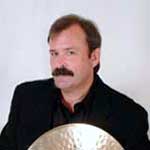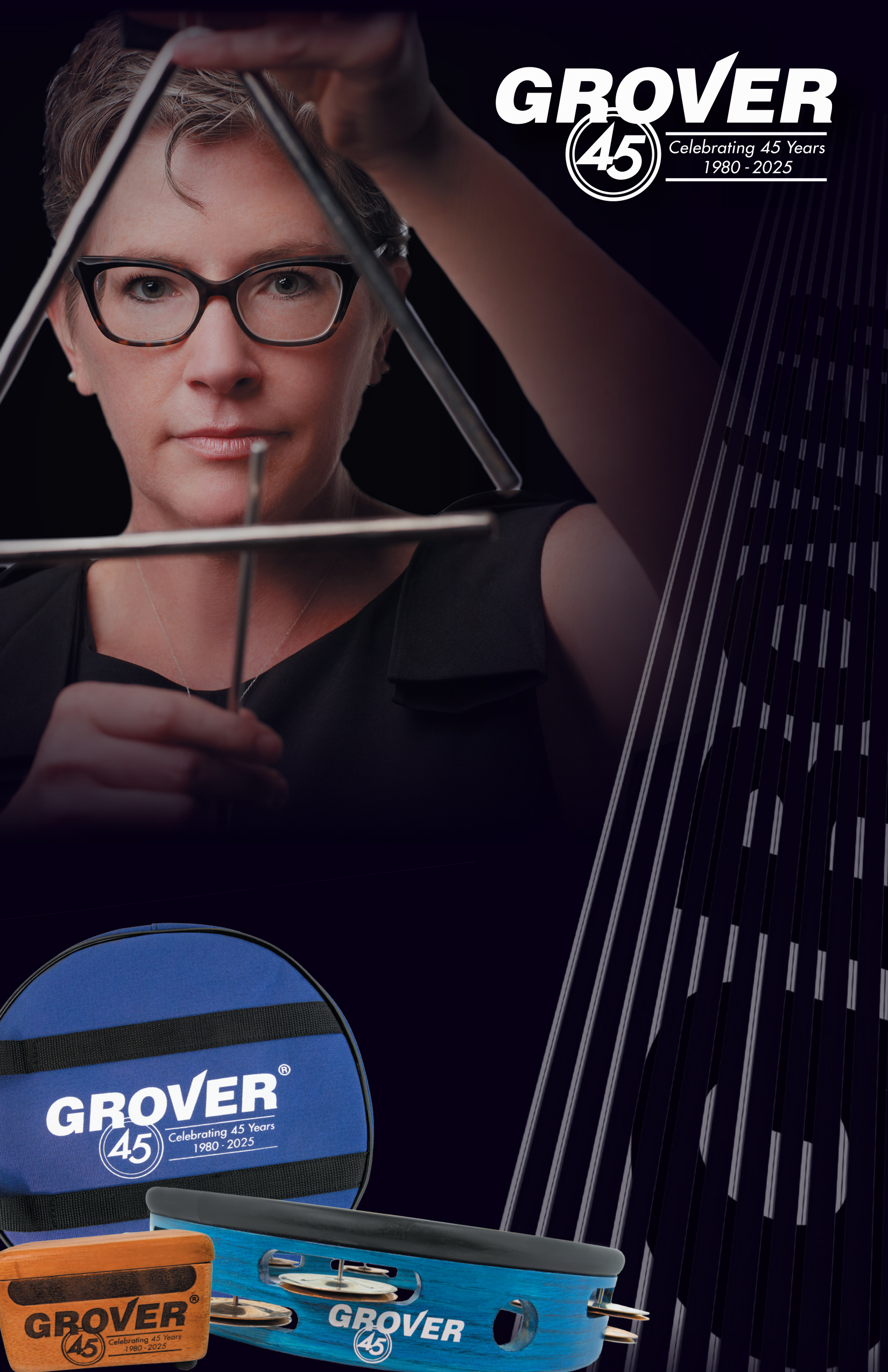The college-bound percussionist can face some exciting challenges as they prepare for a professional career. Percussion crosses all musical boundaries and percussion students have the widest possible vocabulary of instruments and musical genres to master – more than any other instrumentalist. Although some students don’t decide to declare a major until after they have started college, this is not a wise move if music is on your list of options. Music is a serious profession and a “fast-track” major because you start required coursework in your first semester of college. During your senior year of high school (and earlier), focus on your grades and your audition for college. With a little planning and preparation during your high school career, you can help to make a smooth transition into your new life as a college percussion major.
Take Your Academic Classes Seriously
Get good grades now. Being academically organized and successful will give you more time to practice. Many times, college instructors hear that, “I practice a lot, so my grades aren’t that good.” This doesn’t cut it any more. If you catch a bad case of “senioritis” you may have to go to a junior college or take preparatory and review courses to bring your grades up to an acceptable level before you can transfer to a music school. Schools are more selective these days, therefore you must be academically sound. College Admission Offices look at your grades as an indicator of your work ethic and potential for success. Who knows, if your high school transcripts are good and you do well on your college entrance exams, you may even place out of several required classes – even more time to practice!
Get Experience Outside of Your School Program
Take private lessons from an experienced teacher. Tell them that you want to be ready for college auditions. A good teacher will move you in the right direction and help find study materials that will capitalize on your strengths and work on your deficiencies as well. If there is a college in your area in which you are interested, take private lessons with the professor or a graduate student. This will prepare you for life in the “trenches”.
Attend a summer music symposium. Increase your knowledge of the percussion profession. There are many camps and workshops that give students the opportunity to interact with nationally-recognized professional artists and educators. Also, develop a relationship with the percussion specialist at your local music dealer. They can keep you informed of new products, services, and in-store clinics.
Go to the public library and look for books, journals, and magazines that are related to music and percussion. Search for web sites that offer resources for drums, drumming, and percussion. Develop a passion for information related to your new profession.
Look for performance opportunities outside of school such as church, service clubs and organizations, garage bands, honor bands, community bands, and drum corps. This experience will help build your resume of activities.
Join the Percussive Arts Society. PAS is a worldwide network of performers, teachers, students, enthusiasts and music industry professionals. They service their membership through award winning publications, web site at pas.org, and through the sponsorship of state and international chapters. Look for a PAS chapter in your region. Chances are, there is a PAS Chapter “Day of Percussion” in your area.
Research Your College List
Get all the facts from the colleges you are interested in. Start early to look for music programs that can help you prepare for a professional career. All schools have some specific audition requirements. Call or e-mail them to get their particular requirements before you choose and prepare your music. Check out their web site and become familiar with the faculty and program offerings. Ask to be put on their mailing list for notice of concerts and recitals. This is handy to know when planning a campus visit.
Ask about the availability of both academic and music scholarships. Do some research and check around your community for additional scholarship opportunities. Some service organizations and clubs have scholarships available to talented students.
Plan Your Campus Visits
Take a campus tour before you audition. When you have narrowed your college choices, plan to take an audition at each school rather than just your first choice. Plan your visit when there are concerts going on to see the place in action. Ask to observe rehearsals. Ask if they can suggest a student to give you a walking tour and make note of the social and musical environment. Listen to all the music groups you can and sit-in on an academic class, if possible. As a music major, you will learn from the whole faculty – not just the percussion teacher.
Many out-of-state schools may accept audition videos, have regional auditions, or have you audition for an alumnus in your area. Most schools prefer for you to audition “live” on their campus, especially if you are auditioning for a scholarship.
Preparing for the Audition
Select music that is both technically appropriate and musically expressive. You want to demonstrate both technique and musicality. Many students think they will be impressive if they play the hardest stuff – wrong! Choose music you can master. The most challenging aspect of performance is doing something well at any level. You make a better impression when you have command over your instrument and the music, more so than when you just try to hack through the infamous “Black Page”.
Ask what instruments are available to you before you travel to the audition site. Although most larger instruments are provided, you may have to bring smaller items such as cymbals, foot pedals, and other accessories.
Most college percussion programs suggest that you prepare audition material and be prepared to sight-read in the following areas:
• Mallet Keyboard (both 4-mallet and 2-mallet repertoire). Know your major and minor scales and chord arpeggios.
• Snare Drum (both concert and rudimental).
• Timpani. Tuning and touch are the important areas in selecting a solo or etude.
• Multiple Percussion and/or Drum Set.
Some auditionees will also have something extra prepared that sets them apart from others, such as hand percussion, orchestral excerpts, or Latin percussion. Also remember three important things: sight-reading, sight-reading, and sight-reading! You will probably be asked to sight read in your audition. Develop a strategy for reading new music and practice it everyday. Play for yourself and others before you go to an audition. Tape record a mock-audition and evaluate yourself. Play for your parents, church group, classmates, relatives, friends, etc.
Bring the original scores of all the music you play for your audition. It will be helpful for the audition panel to have duplicated copies of your music, provided you show them the original. The copies can be discarded after the audition. Duplicating copyrighted music is unethical and illegal, but is allowed for a one-time use, provided you own the original.
Prepare a resume for your audition. List your school work, activities, honors and awards, and be sure to note any musical activities or accomplishments you have had outside of school. List your music teachers and include at least three references. Although you should dress like you’re on a job interview, you will want to wear something comfortable for your audition.
Arrive at the audition early to fill out any paper work, warm-up, and set-up any instruments that you have brought with you. There may be a time limit for your audition. Because many music schools have busy audition dates, you may only get to play excerpts from your prepared music. Don’t be upset if this happens, prepare for this situation in front of others so you won’t get flustered.
Develop a list of questions to ask your audition panel or during another campus visit. Talk with your parents, music teachers, siblings, and friends who have been to college to develop a set of questions and issues that are important to making your decision to attend college that is right for you. Remember, you are interviewing them as well! Specific issues relating to percussion may include questions such as:
• Will I study with the percussion professor or a graduate assistant?
• What instruments will I study?
• How long are the practice rooms open?
• How do I get selected for percussion ensemble, marching band, jazz band,and when do I audition for these groups?
• What instruments, mallets, and music do I need my first year and beyond?
Bring along a parent, guardian, or teacher to your audition. They should meet the college instructors and be familiar with the environment where you will be spending countless hours. Their impressions of the college may provide you with valuable perspective.
After You Have Been Accepted
Start to gather your own instruments, mallets, music, recordings and other required materials for the fall semester. Music can be an expensive endeavor. Plan your finances to include regular purchases for percussion equipment and accessories. Remember to ask if your new college has any summer music programs or can recommend any summer symposiums for you to attend. If you haven’t yet joined the Percussive Arts Society, do it now.
The best schools can afford to be selective, so be prepared both academically & musically. With some planning and patience, you can make an informed decision about which college to attend and get yourself organized and prepared for an exciting life as a college percussionist. If you have a passion for what you are doing, working hard will be fun and help lead to a rewarding career.
 Well known for his long past association with the internationally renowned Rosemont Cavaliers Drum and Bugle Corps, Jim has served as their principal instructor, arranger, and Program Coordinator and was named to the Drum Corps International Hall of Fame in 2008. He was Percussion Director for the McDonald’s All-American High School Band and has performed at the International Society of Music Education World Conference, International Patagonia Percussion Festival, Journèes de la Percussion, PercuSonidos Percussion Festival, Australian Percussion Eisteddfod, MENC National In-Service Conference, Midwest Band & Orchestra Clinic, MusicFest Canada, All-Japan Band Clinic, Music for All World Percussion Symposium, state MEA conventions across the country, and frequently appears as an artist at the Percussive Arts Society International Conventions (PASIC).
Well known for his long past association with the internationally renowned Rosemont Cavaliers Drum and Bugle Corps, Jim has served as their principal instructor, arranger, and Program Coordinator and was named to the Drum Corps International Hall of Fame in 2008. He was Percussion Director for the McDonald’s All-American High School Band and has performed at the International Society of Music Education World Conference, International Patagonia Percussion Festival, Journèes de la Percussion, PercuSonidos Percussion Festival, Australian Percussion Eisteddfod, MENC National In-Service Conference, Midwest Band & Orchestra Clinic, MusicFest Canada, All-Japan Band Clinic, Music for All World Percussion Symposium, state MEA conventions across the country, and frequently appears as an artist at the Percussive Arts Society International Conventions (PASIC).
Among his works for concert and marching percussion, Jim has published with Hal Leonard Publishing, C.L. Barnhouse Co., C. Alan Publications, Innovative Percussion, Row-Loff Productions, Meredith Music and Alfred Publications with whom he serves as Percussion Team Author for the Expressions Music Curriculum.

This is great info for aspiring percussionists. Thank you Jim and Neil!